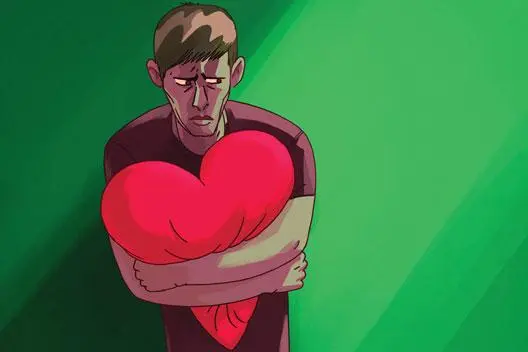
Experiencing passionate love linked with more belief in free will AND determinism
Interesting findings suggest many of us are willing to entertain a nuanced philosophical approach to life and love.
05 December 2016
Psychologists have become very interested in the causes and consequences of our beliefs about free will. For instance, many consider that progress in neuroscience is likely to undermine our belief in free will (though this has been challenged). And in terms of consequences, less belief in free will has been shown to affect our own behaviour and judgments, for example increasing our tendency to cheat, and making us more lenient towards other people's criminal culpability.
One unexplored issue is how experiencing deep, romantic love is likely to affect our belief in free will – or indeed vice versa. A new series of online studies in Consciousness and Cognition has made a start, looking at whether thinking about a more passionate versus less passionate relationship is linked with a greater or lesser belief in free will and, separately, stronger or lesser belief in determinism (the idea that the future is pre-determined and beyond our control). The answer, it turns out, is both. Thinking about a more intense passionate love affairs tends to go hand in hand with stronger beliefs in free will and stronger beliefs in determinism.
The researchers, led by Jordane Boudesseul at the University of Grenoble, surveyed hundreds of Americans and Indians across three studies conducted using Amazon's Mechanical Turk website. The format was generally the same for each study, but using slightly different questionnaires. Participants answered questions about the intensity of a past or present romantic relationship, and they answered questions about their belief in free will (such as whether they agreed "People have complete control over the decisions they make") and their belief in determinism (such as whether they agreed "My future has already been determined by fate"). Some answered the love questions first then the philosophy questions, others did things the other way around.
The more intense the passionate romantic relationship that participants brought to mind, the more strongly they tended to endorse the idea that we have free will. Similarly, though to a weaker extent, the more passionate the love, the more strongly they also stated a belief in determinism.
These somewhat paradoxical results suggest that when it comes to the way we think about love and free will, we are "philosophical compatabilists" – that is, we seem to think it's possible to be free and for life to be determined at the same time. Boudesseul and her colleagues said this makes sense if you consider that being in love can make people feel happy and empowered, as if anything is possible, yet at the same intense passion also goes hand in hand with a loss of liberty, such as being unable to stop thinking about the object of one's love, or feeling drive to be with him or her.
Another less interesting possibility is that some people in the studies were simply more inclined to agree with any statements placed in front of them, whether about free will or determinism or passion – the so-called "acquiescence bias" – but the researchers don't think this is the case (and it also wouldn't explain why passionate love was more strongly correlated with free will beliefs than determinism beliefs).
Assuming the findings are real and not just a response bias, they are still difficult to interpret because they are purely correlational – we can't tell if free will/determinism beliefs affect the intensity of our passion, or vice versa, or if some third factor, such as self-esteem, is affecting both philosophical beliefs and passion intensity. There is just a small clue, in that among those participants who recalled a particularly passionate relationship, those who answered questions about this love affair first tended to score higher in belief in free will than those who answered the questions about free will before answering questions about the relationship.
We certainly need more research to explore these causal dynamics further, but for now these interesting findings suggest many of us are willing to entertain a nuanced philosophical approach to life and love.
Further reading
—Free love? On the relation between belief in free will, determinism, and passionate love


